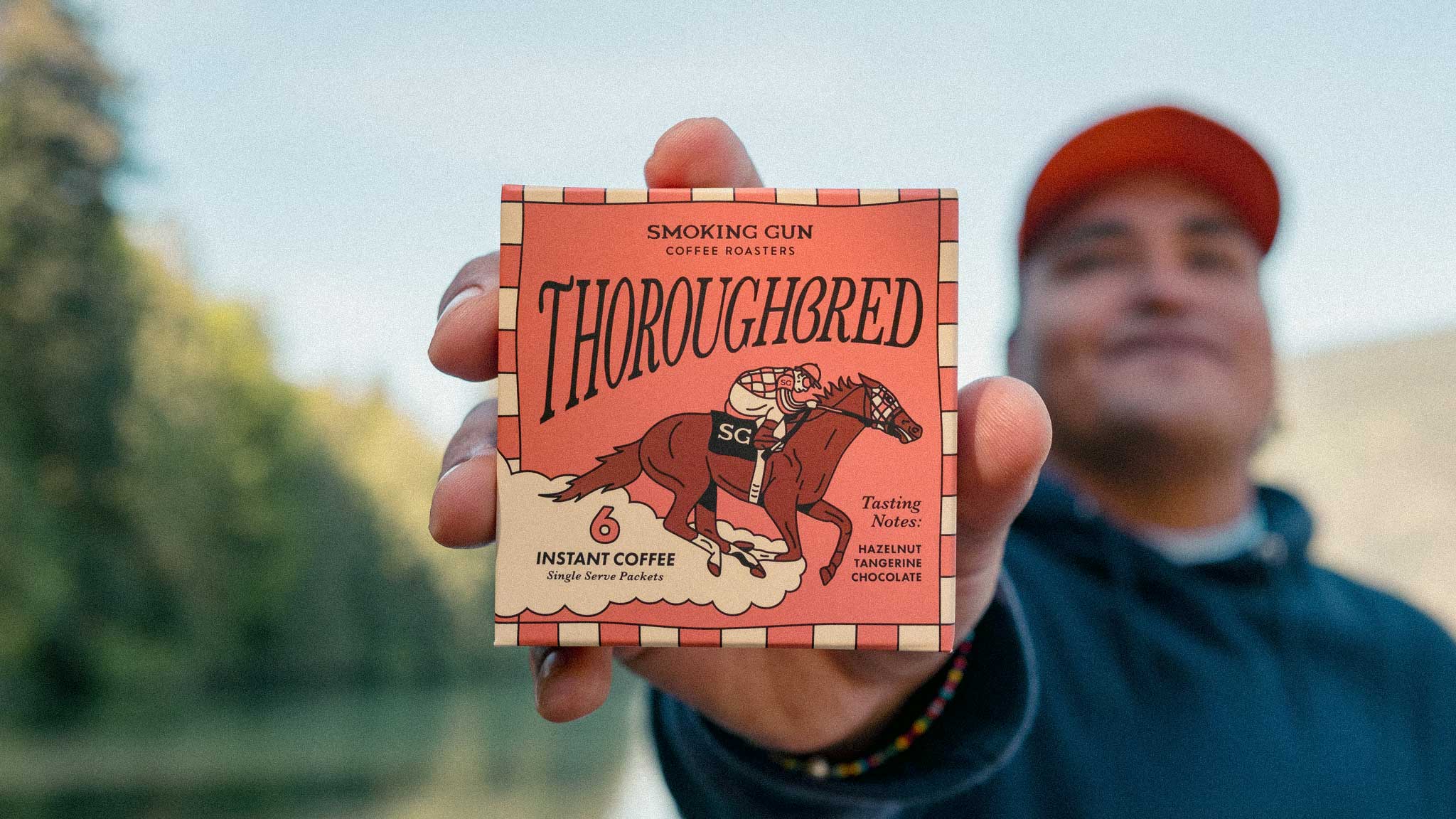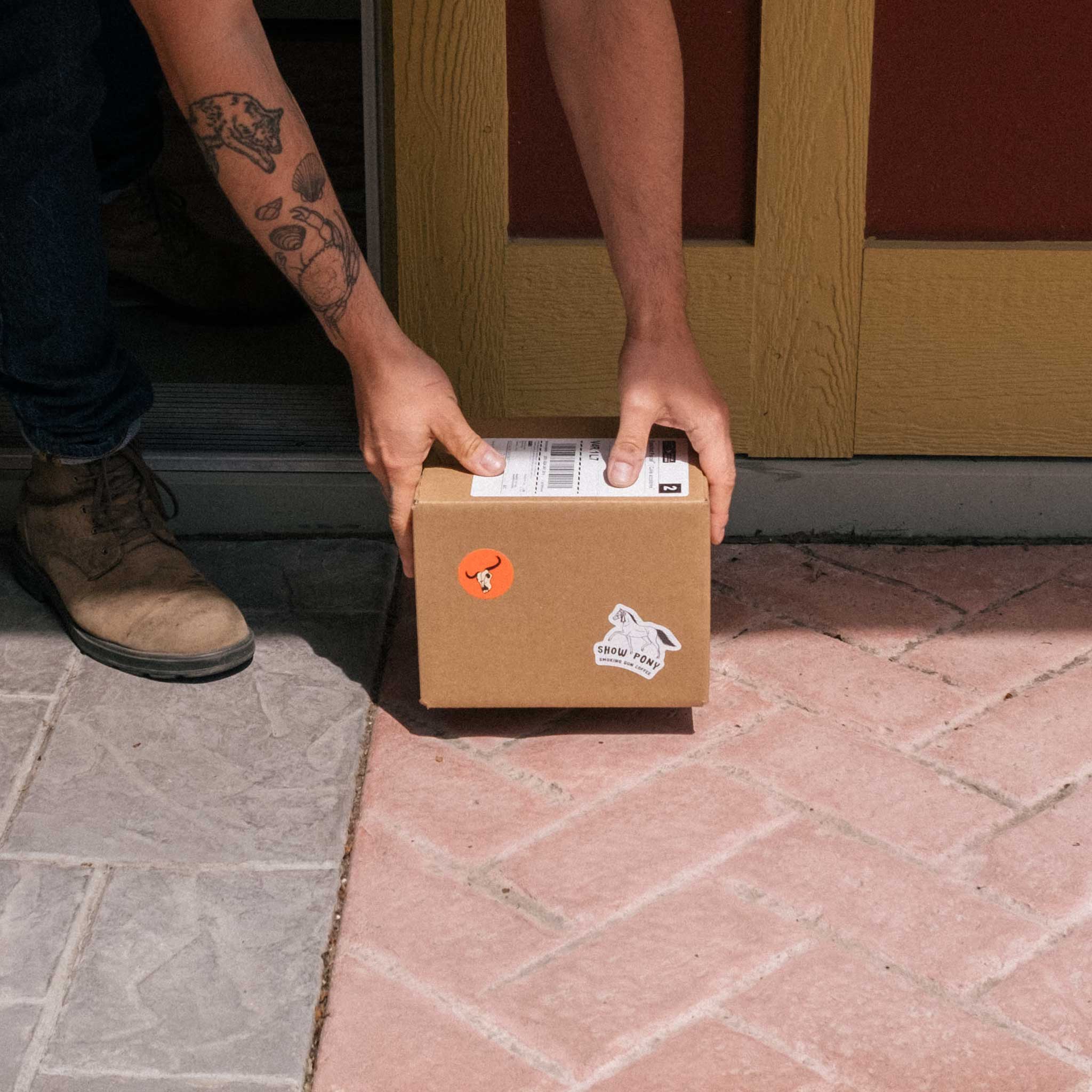
Does Decaf Coffee Deserve It's Bad Reputation? The Answer Is... Kinda.
Coffee lovers are no strangers to the magic of a perfectly brewed cup of joe. But sometimes you want that comforting cup of goodness without the buzz. Maybe you’re sensitive to caffeine, or maybe you want a cup late at night. Whatever your reason, decaf presents a tantalizing alternative to regular, caffeinated coffee.
Yet, not all decafs are created equal. In fact, decaf kinda has a bad rep. But here at Smoking Gun Coffee, we are SUPER proud of our decaf and think it holds its own special place on our line-up. But what makes ours, and many other roaster’s, decaf so good? Great question!
We only use water process decaf. We’ve used Descamex from Mexico in the past and we have a Swiss Water®️ Process from Peru in our current line-up. We love both! But we’re going to dive into the Swiss Water Process and explain the difference between it and conventional decaf, and hopefully explain why one tastes WAY better than the other.
The Decaf Dilemma
Before we delve into the specifics, it’s essential to understand why decaf coffee exists in the first place. Decaffeination is the process of removing caffeine from coffee beans while retaining the flavours that make coffee so beloved. Historically, this has been achieved through various methods, but the two primary contenders in today’s market are conventional methods and the Swiss Water®️ Process.
Old School Decaffeination
Conventionally decaffeinated coffee often undergoes a chemical extraction process using solvents like methylene chloride or ethyl acetate. In this method, green coffee beans are steamed to open their pores, allowing the solvent to extract the caffeine. Once extracted, the solvent is separated from the beans, leaving behind decaffeinated coffee ready for roasting.
While this method effectively removes caffeine, it has its drawbacks. Some argue that residual traces of solvents may affect the taste or raise health concerns. Additionally, the process can strip away some of the coffee’s natural flavours, leading to a potentially less vibrant cup.
Enter: Swiss Water Process, a Natural Solution
In contrast, the Swiss Water®️ Process relies on the power of water and osmosis to decaffeinate coffee beans. The process begins with a batch of green coffee beans being soaked in hot water, allowing the caffeine and other soluble compounds to dissolve. The resulting solution, known as Green Coffee Extract (GCE), is then passed through activated charcoal filters. These filters selectively remove caffeine while leaving behind the flavour-rich compounds. The beans are then soaked in the caffeine-free solution, and dried once more so they are ready to roast - flavour intact.
What sets the Swiss Water®️ Process apart is its natural approach. It doesn’t rely on chemical solvents, making it a popular choice among those seeking a more environmentally friendly and health-conscious option. Moreover, because it doesn’t strip away as many of the coffee’s natural compounds, it often results in a more flavourful cup compared to conventionally decaffeinated coffee.
What Really Matters: Taste
When it comes down to it, taste is paramount for any coffee lover. While both methods aim to preserve flavour, the Swiss Water®️ Process often emerges as the preferred choice for discerning palates. Without the interference of chemical solvents, Swiss Water®️ Process decaf tends to maintain the nuanced flavours and aromas that coffee lovers crave. We certainly notice a HUGE difference when tasting side-by-side.
In a blind taste test, many participants note the smoother, more balanced profile of Swiss Water®️ Process decaf. Its clean finish and absence of any chemical aftertaste make it indistinguishable from regular coffee for some drinkers. On the other hand, conventionally decaffeinated coffee may exhibit slight flavour deviations or muted notes due to the solvent extraction process.
Decaf, Redefined
In the world of decaf coffee, the choice between conventionally decaffeinated and Swiss Water®️ Process decaffeinated coffee boils down to more than just caffeine content. It’s about flavour, purity, and conscientious consumption. While both methods achieve the primary goal of removing caffeine, the Swiss Water®️ Process stands out for its commitment to quality and sustainability. Next time you’re looking for decaf, make sure you ask if it’s Swiss Water®️ Process or similar. These days, pretty much every reputable coffee roaster uses these processes - even the big one from Seattle!
If you want to learn more about our Peru decaf, check it out here! We also serve it on our coffee bar at our Chilliwack cafe so you can try it in any espresso-based drink on our menu.




